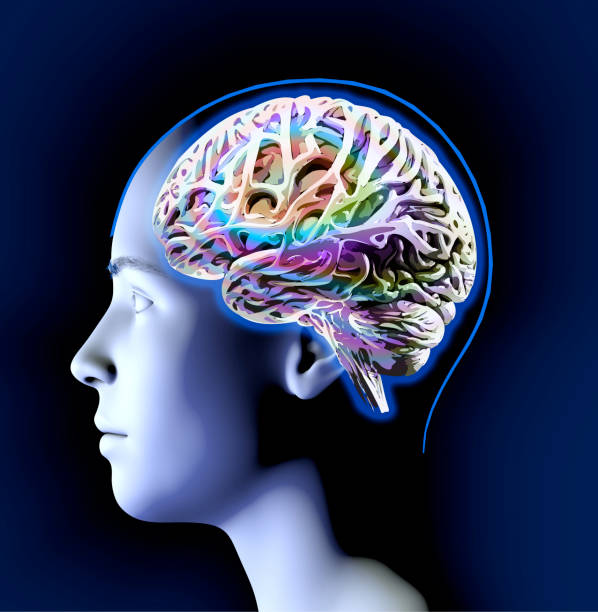Picture this: you walk into a room, maybe a party or a meeting. There’s someone there who’s always rubbed you the wrong way. Maybe they once made a snide comment. Maybe they talk over people or seem arrogant. You don’t respect them. You don’t trust them. You wouldn’t invite them to dinner.
And yet, when you speak, you glance in their direction. A part of you wants them to smile at your joke. To nod in agreement. To like you.
It’s irrational. It’s frustrating. But it’s also completely human.
Why do we care what people think of us—even people we don’t like, admire, or even want in our lives? What strange wiring compels us to crave approval from those who have none to give?
The answer lies deep in the folds of our evolutionary history, in the architecture of our social brains, and in the stories we tell ourselves about who we are. This is a tale not just of psychology, but of survival, identity, and the most mysterious force of all: belonging.
Born to Belong: The Evolutionary Root
Tens of thousands of years ago, on the savannas of early human life, being liked wasn’t a luxury—it was a matter of life and death. Our ancestors lived in tightly-knit tribal groups. Being part of a group meant safety, food, warmth, protection, and offspring that survived. Being excluded meant danger, isolation, and likely death.
Our brains evolved under those conditions. Approval wasn’t just nice; it was necessary. And the need to be accepted became wired into us as deeply as the need for food and shelter.
Even today, our nervous systems are tuned to the signals of inclusion and exclusion. A disapproving glance, a shrug, a sigh—these tiny cues light up alarm bells in our brain. When someone doesn’t like us, it doesn’t just sting our ego. It activates the same brain regions involved in physical pain. Neuroscientists call it “social pain,” but it feels just as real.
So what does this mean? It means that the desire to be liked—even by people we don’t like—isn’t a character flaw. It’s an ancient survival mechanism that our modern lives haven’t evolved past.
The Brain’s Social Radar
Our brains are incredible machines. But they’re not logical spreadsheets. They’re story-driven, emotion-infused, context-sensitive instruments that evolved to prioritize connection.
The prefrontal cortex, the seat of our decision-making and self-awareness, works closely with the limbic system, the emotional hub of the brain. Together, they generate our social instincts. Among these instincts is social monitoring—our tendency to constantly scan others for signs of approval or rejection.
It happens in milliseconds. Someone raises an eyebrow when you speak? You instantly interpret it. Are they judging you? Are they impressed? Do they agree?
And it doesn’t stop just because you dislike them.
In fact, researchers have found that disliked individuals can actually exert a stronger pull on our attention than those we feel neutral about. That’s because negative emotions—like anger, mistrust, or defensiveness—require more cognitive resources. Our brains, always alert for threats, watch those we dislike more closely. We interpret their feedback with a sharper lens.
Which means: we’re more likely to notice when someone we dislike disapproves of us. And that disapproval hurts more than we want to admit.
The Ego’s Fragile Mirror
Our sense of self is not static. It’s constructed and reinforced through relationships. We reflect ourselves in others, constantly adjusting our identity based on how we’re perceived.
This psychological mirroring begins in childhood. Infants learn about themselves through the gaze and reactions of caregivers. A smile becomes reinforcement. A frown becomes confusion or shame. Over time, this internalizes into a system of social self-worth—how we feel about ourselves depends, in part, on how others feel about us.
Fast forward to adulthood, and the same mechanism still operates—just more subtly.
When someone, anyone, dislikes us, we don’t just feel rejected. We often question our own value. “Am I annoying? Did I say something wrong? Is there something about me I can’t see?”
Now, add in the twist: if we dislike the other person, we might think their opinion shouldn’t matter. But deep down, our brain doesn’t care. It registers disapproval all the same. In fact, it might work harder to resolve the cognitive dissonance of “someone I disapprove of disapproving of me.”
In this way, being disliked feels like a threat to our identity. And threats to identity are things we are wired to avoid—even if it means longing for approval from someone we don’t respect.
The Status Game We All Play
Human societies, no matter how egalitarian they claim to be, are built on invisible ladders. Status exists in classrooms, offices, friend groups, and even families. And our desire to be liked is often entangled with our need for status.
Social psychologists have found that people seek social capital—not just in the form of friendships, but in perceived popularity, influence, or prestige. Being liked enhances status. Being disliked can diminish it.
So when someone dislikes us—especially someone vocal or visible—we worry not just about that one relationship. We worry about the ripple effect. Will others think less of us? Will our reputation suffer?
This fear activates what psychologists call reputation management—a set of behaviors we engage in to protect how we’re perceived. We may smile more. We may agree when we don’t want to. We may even compliment people we dislike.
Not because we want to. But because being liked is often a proxy for safety in social hierarchies. The desire for approval becomes a form of social self-preservation.
Cognitive Dissonance and the Irony of Approval
There’s another reason we seek approval from people we don’t like: the need for consistency.
When we dislike someone, we form a mental story about them. We categorize them. We think, “They’re not worth my time,” or “They’re unethical,” or “They’re arrogant.”
But if that person rejects us? If they don’t like us?
It throws a wrench in our narrative. Suddenly, we’re no longer the protagonist simply rejecting the villain—we’re being judged by them. This creates cognitive dissonance, a psychological discomfort that arises when two beliefs clash.
To resolve the dissonance, we may crave their approval—not because we want a relationship, but because we want our self-concept to remain intact. We want the story to make sense again. If they like us, we can return to thinking, “I’m fine—they’re just the problem.”
But if they don’t? It raises uncomfortable questions.
So we strive, sometimes unconsciously, to win their approval—just enough to feel balanced again.
Social Media: The Digital Magnifier
In the age of likes, hearts, and followers, our desire to be liked has never been more visible—or more complicated.
Social media platforms are built on metrics of validation. And while we like to believe we only care about feedback from those we respect, algorithms don’t discriminate. A like is a like. A comment is a comment.
Psychologists have found that social media intensifies the need for universal approval. You might post something and feel a rush of joy as the likes roll in. But then you notice that one person—maybe someone you argued with online or someone who always posts cryptic comments—has remained silent. Or worse, they liked someone else’s version of the same post.
Why does it matter? You don’t even like them!
But it does matter, because social media blurs boundaries. It turns every social interaction into a performance. And when you’re on stage, even the booing from the back row is hard to ignore.
This digital world reinforces our ancient wiring. The tribe is no longer twenty people around a fire—it’s hundreds of followers watching our every move. And approval, even from someone we dislike, feels like protection in an unpredictable landscape.
When the Desire Becomes Dangerous
While the desire to be liked is natural, it can become destructive when it overrides our authenticity.
People-pleasing, chronic self-editing, and the inability to say no often stem from the fear of being disliked. This fear becomes magnified in relationships with authority figures, coworkers, or toxic personalities. We may silence ourselves, abandon our values, or overextend emotionally just to gain approval.
In extreme cases, this can lead to anxiety, burnout, or even identity loss.
Mental health professionals emphasize the importance of boundaries—knowing when the cost of being liked is too high. The need to be liked shouldn’t outweigh the need to be true to yourself.
Self-worth, they remind us, shouldn’t be outsourced to people who don’t value us.
What This Teaches Us About Ourselves
The next time you find yourself hoping for approval from someone you’d rather avoid, don’t be too hard on yourself. You’re not weak. You’re not fake. You’re not shallow.
You’re human.
You are the product of a brain that evolved to connect, to belong, and to survive in groups. Your desire to be liked—even irrationally—is a reflection of your social intelligence, not its failure.
But you also have something your ancestors didn’t: self-awareness.
You can observe the impulse. You can decide which approvals matter. You can choose which stories you tell yourself—and which ones to let go.
Because in the end, the most powerful kind of approval isn’t the kind you win from others. It’s the kind you give to yourself.






